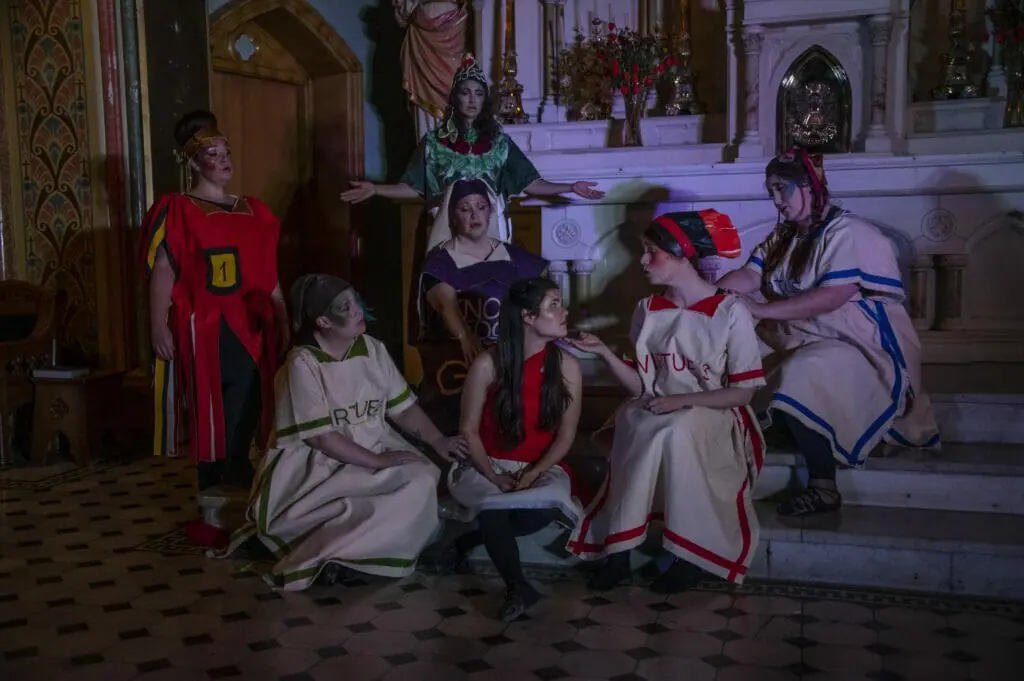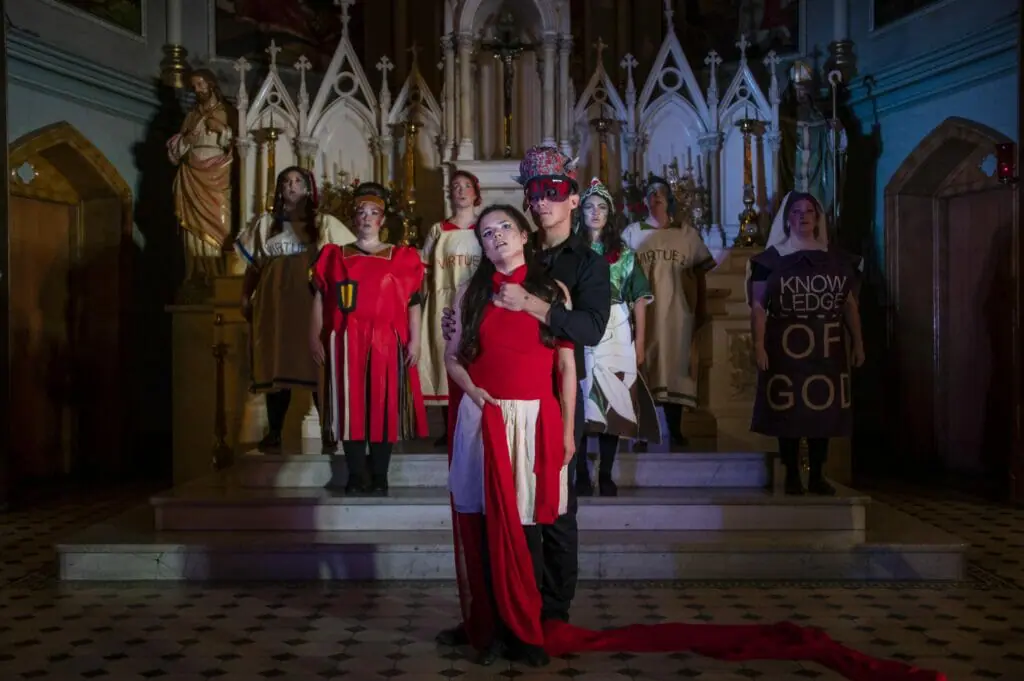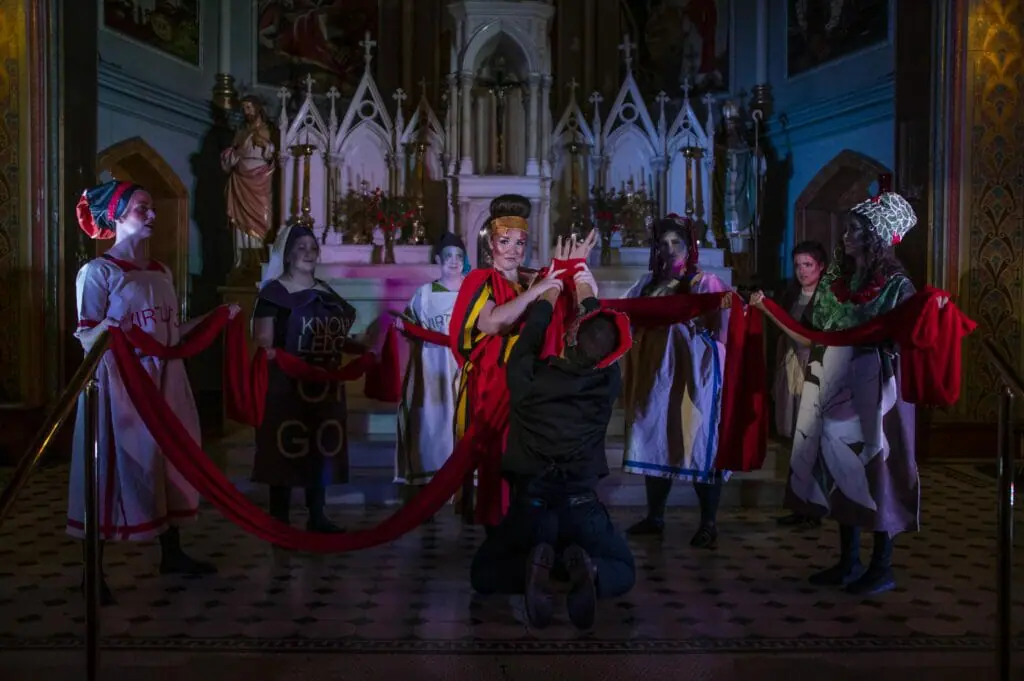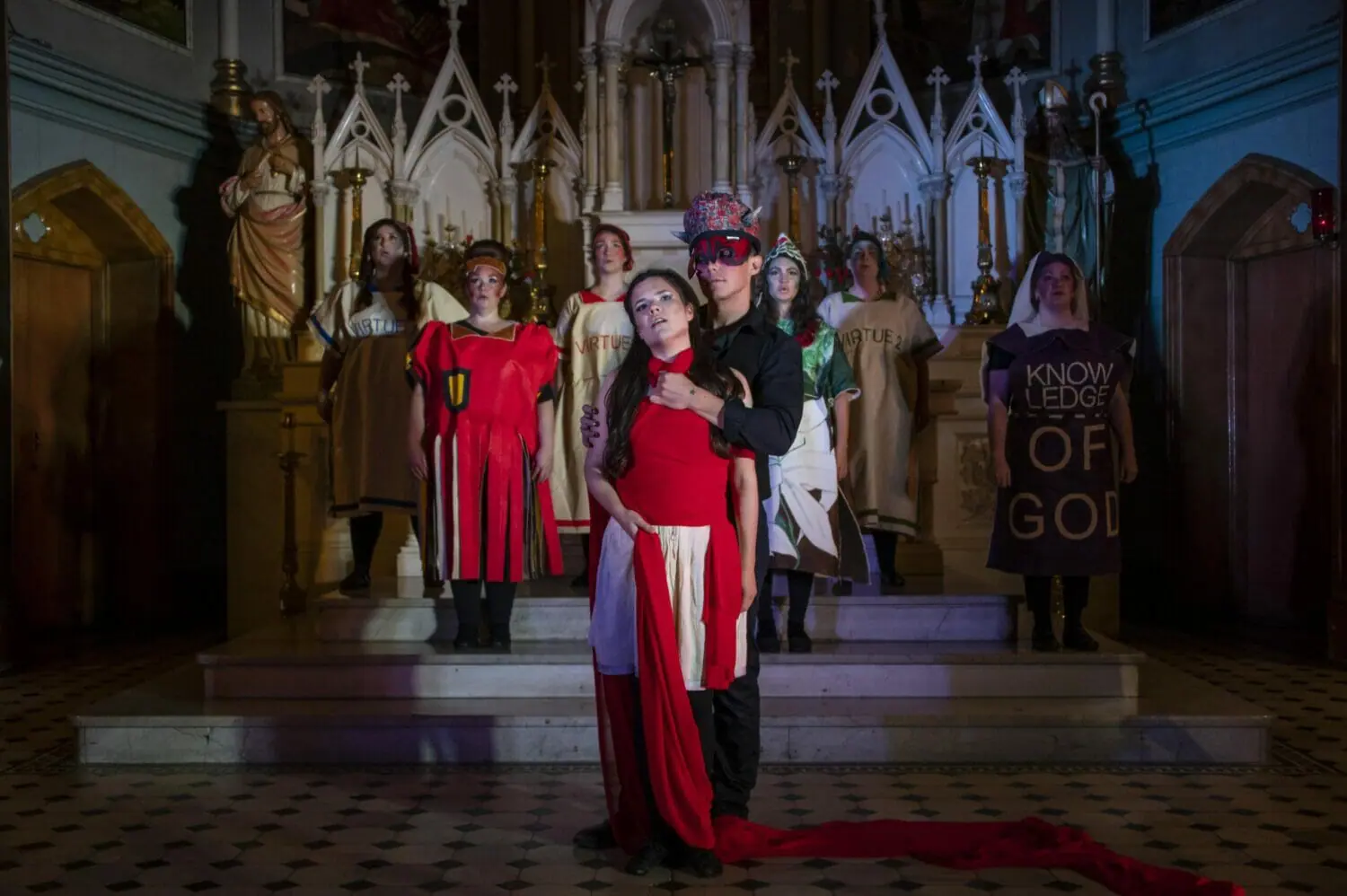On Oct. 21, University of King’s College students had the opportunity, through the Foundation Year Program department, to watch a performance of the Ordo Virtutum, an 870-year-old morality play staged by Vocalypse Productions, and a lecture, at St. Patrick’s Church.
Anima versus the Devil
The play, written by St. Hildegard of Bingen in 1151, portrays the struggle between the Anima, or soul, against a seducing Devil. The play brings to life the Virtues, who will aid the Anima in the conflict against evil and lead her back to grace.
Alongside a lecture on St. Hildegard and the history of the Ordo Virtutum, students enjoyed the premiere of an original choral piece by renowned Canadian composer, James Rolfe. The piece, “O Greenest Branch,” draws from Rolfe’s family history, who, being Rhineland Jews, had to endure exile and violence for hundreds of years. This was a magnificent and complimentary spectacle to the moral themes of the Ordo Virtutum.
The idea of producing Ordo came seven years ago from Dr. Jennifer Bain, a Hildegard specialist who delivered the lecture, says co-director Janice Isabel Jackson.
“She said, ‘Why don’t you guys do Ordo? And, why doesn’t James write a companion piece?’” Jackson says. “And so that’s how it came about. Then, three years ago I wrote a grant [to the Canada Council for the Arts], and we got the money.”

Navigating delays
The Canada Council for the Arts is a government council that funds public arts at a federal level. The council is crucial in the financing of artistic projects like the staging of the Ordo Virtutum by Vocalypse.
However, the play had to be delayed for almost a year from its original October 2020 premiere date due to COVID-19.
“The Canada Council was brilliant in terms of allowing people to postpone things, because, well, what could we do?” says Jackson.
The production went smoothly after the delay.
“It was a little weird [seeing the production live]. It’s been so long since we’ve been in a space with that many people, but, at the same time, it was amazing,” says co-director Emily Jewer. “It was joyous. It’s just so nice to be able to create something and have audiences come in person. There is nothing like live theatre.”
Jackson had a slightly different experience.
“COVID-19 really helped me take things as they came, so I was just staying patient” she says. “But, I think it is doubly special when you have to wait so long to do a show – it heightens it.”

Working in Latin
The cast of seven performed the centuries-old play in Latin, accompanied by a Tar, a Persian stringed instrument. For this rendition of the Ordo Virtutum, the directors took on the challenge of bringing to life the ancient story to modern audiences. The showing of the production also included a pamphlet with the English translation of the play.
“It was a little different working in a different language,” says Jewer. “I worked more on story points than I did in actual lines. It was really interesting.”
Jackson thinks the play isn’t affected by its age. “To me, emotions are emotions. It doesn’t really matter if it is the 12th century or the 21st century,” says Jackson. “The organic-ness that we were able to create, I haven’t seen in other performances. We gave the singers permission to feel what they felt. I wanted it to be real – flesh and blood.”
The themes of the Ordo Virtutum stand the test of time.
“I did a lot of work with Anima and the Devil,” says Jewer. “And it is quite a relatable relationship for anyone who has gone through any difficult relationships, or domestic violence. It’s an allegory.”
The relationship between the Soul and the Devil is the main focus of the play.
“I’ll credit Emily with this,” says Jackson. “She really showed the bond that they have… it was [visually] obvious that there was a conflict.”
A talented cast, creative choreography and hauntingly beautiful vocals, as well as the timeless writing of St. Hildegard, made this production of the Ordo Virtutum unique and moving for audiences today.



Recent Comments